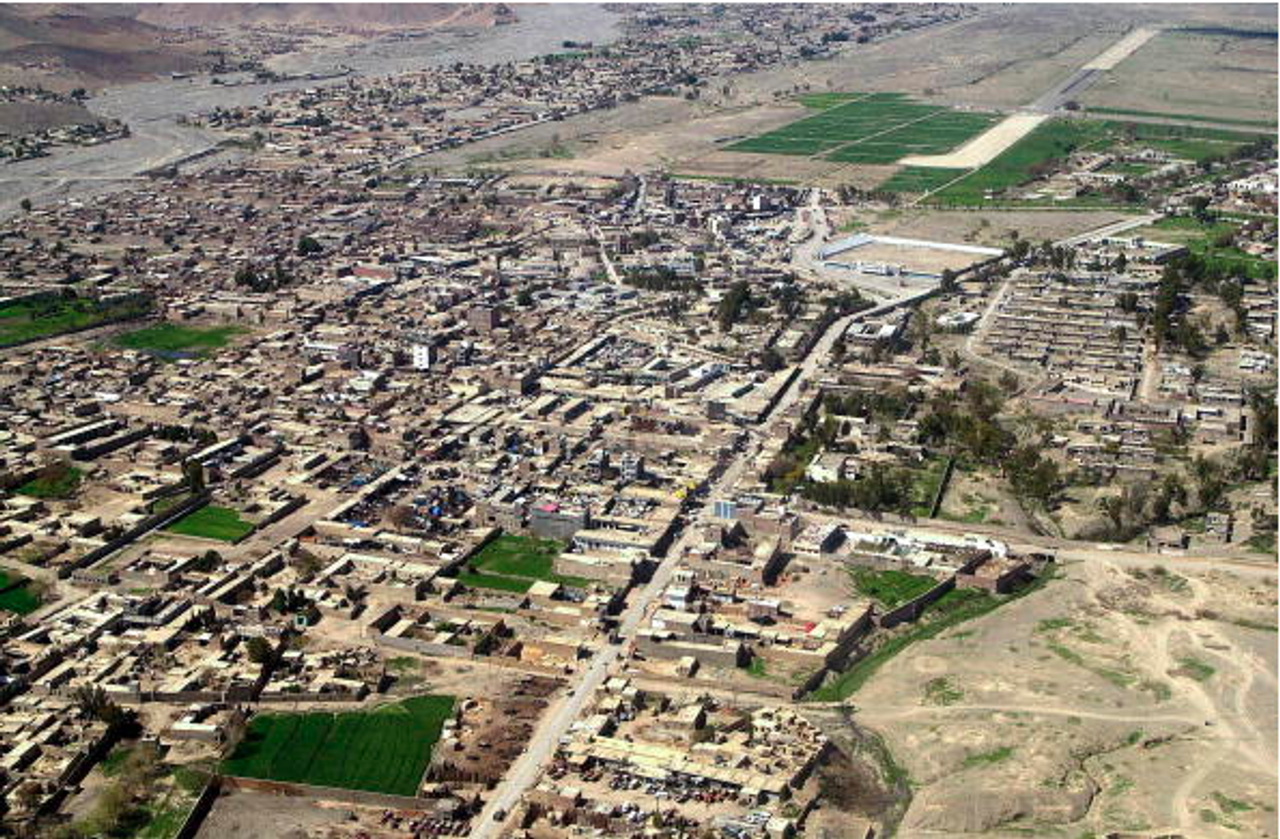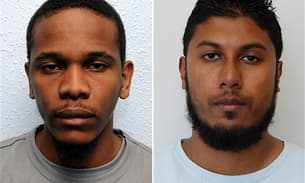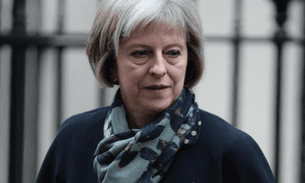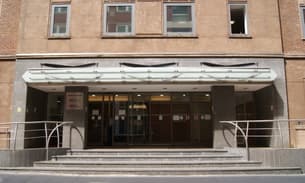
‘My British citizenship was everything to me. Now I am nobody’ – A former British citizen speaks out
When a British man took a holiday to visit relatives in Pakistan in January 2012 he had every reason to look forward to returning home. He worked full time at the mobile phone shop beneath his flat in southeast London, he had a busy social life and preparations for his family’s visit to the UK were in full flow.
Two years later, the man, who cannot be named for legal reasons, is stranded in Pakistan, and claims he is under threat from the Taliban and unable to find work to support his wife and three children.
He is one of 27 British nationals since 2006 who have had their citizenship removed under secretive government orders on the grounds that their presence in the UK is ‘not conducive to the public good’. He is the first to speak publicly about his ordeal.
‘My British citizenship was everything to me. I could travel around the world freely,’ he told the Bureau. ‘That was my identity but now I am nobody.’
Under current legislation, the Home Secretary, Theresa May, has the power to strip dual nationals of their British citizenship if she deems their presence in the UK ‘not conducive to the public good’, or if their nationality was gained on fraudulent grounds. May recently won a Commons vote paving the way to allow her to strip the citizenship of foreign-born or naturalised UK nationals even if it rendered them stateless. Amendments to the Immigration Bill – including the controversial Article 60 concerning statelessness – are being tabled this week in the House of Lords.
A Bureau investigation in December 2013 revealed 20 British nationals were stripped of their citizenship last year – more than in all previous years under the Coalition combined. Twelve of these were later revealed to have been cases where an individual had gained citizenship by fraud; the remaining eight are on ‘conducive’ grounds.
Since 2006 when the current laws entered force, 27 orders have been made on ‘conducive’ grounds, issued in practice against individuals suspected of involvement in extremist activities. The Home Secretary often makes her decision when the individual concerned is outside the UK, and, in at least one case, deliberately waited for a British national to go on holiday before revoking his citizenship.
The only legal recourse to these decisions, which are taken without judicial approval, is for the individual affected to submit a formal appeal to the Special Immigration and Asylum Committee (Siac), where evidence can be heard in secret, within 28 days of the order being given. These appeals can take years to conclude, leaving individuals – the vast majority of whom have never been charged with an offence – stranded abroad.
The process has been compared to ‘medieval exile’ by leading human rights lawyer Gareth Peirce.
The man, who is referred to in court documents as E2, was born in Afghanistan and still holds Afghan citizenship. He claimed asylum in Britain in 1999 after fleeing the Taliban regime in Kabul, and was granted indefinite leave to remain. In 2009 he became a British citizen.
While his immediate family remained in Pakistan, E2 came to London, where he worked and integrated in the local community. Although this interview was conducted in his native Pashto, E2 can speak some English.
‘I worked and I learned English,’ he says. ‘Even now I see myself as a British. If anyone asks me, I tell them that I am British.’
But, as of March 28 2012, E2 is no longer a British citizen. After E2 boarded a flight to Kabul in January 2012 to visit relatives in Afghanistan and his wife and children in Pakistan, a letter containing May’s signature was sent to his southeast London address from the UK Border Agency, stating he had been deprived of his British nationality. In evidence that remains secret even from him, E2 was accused of involvement in ‘Islamist extremism’ and deemed a national security threat. He denies the allegation and says he has never participated in extremist activity.
In the letter the Home Secretary wrote: ‘My decision has been taken in part reliance on information which, in my opinion should not be made public in the interest of national security and because disclosure would be contrary to the public interest.’
E2 says he had no way of knowing his citizenship had been removed and that the first he heard of the decision was when he was met by a British embassy official at Dubai airport on May 25 2012, when he was on his way back to the UK and well after his appeal window shut.
E2’s lawyer appealed anyway, and submitted to Siac that: ‘Save for written correspondence to the Appellant’s last known address in the UK expressly stating that he has 28 days to appeal, i.e. acknowledging that he was not in the UK, no steps were taken to contact the Appellant by email, telephone or in person until an official from the British Embassy met him at Dubai airport and took his passport from him.’
The submission noted that ‘it is clear from this [decision] that the [Home Secretary] knew that the Appellant [E2] is out of the country as the deadline referred to is 28 days.’
The Home Office disputed that E2 was unaware of the order against him, and a judge ruled that he was satisfied ‘on the balance of probabilities’ that E2 did know about the removal of his citizenship. ‘[W]e do not believe his statement,’ the judge added.
His British passport was confiscated and, after spending 18 hours in an airport cell, E2 was made to board a flight back to Kabul. He has remained in Afghanistan and Pakistan ever since. It is from Pakistan that he agreed to speak to the Bureau last month.
Daniel Carey, who is representing E2 in a fresh appeal to Siac, says: ‘The practice of waiting until a citizen leaves the UK before depriving them of citizenship, and then opposing them when they appeal out of time, is an intentional attack on citizens’ due process rights.
‘By bending an unfair system to its will the government is getting worryingly close to a system of citizenship by executive fiat.’
While rules governing hearings at Siac mean some evidence against E2 cannot be disclosed on grounds of national security, the Bureau has been able to corroborate key aspects of E2’s version of events, including his best guess as to why his citizenship was stripped. His story revolves around an incident that occurred thousands of miles away from his London home and several years before he saw it for the last time.
In November 2008, Afghan national Zia ul-Haq Ahadi was kidnapped as he left the home of his infirmed mother in Peshawar, Pakistan. The event might have gone unnoticed were he not the brother of Afghanistan’s then finance minister and former presidential hopeful Anwar ul-Haq Ahadi. Anwar intervened, and after 13 months of tortuous negotiations with the kidnappers, a ransom was paid and Zia was released. E2 claims to have been the man who drove a key negotiator to Zia’s kidnappers.
While the Bureau has not yet been able to confirm whether E2 had played the role he claimed in the release, a source with detailed knowledge of the kidnapping told the Bureau he was ‘willing to give [E2] some benefit of the doubt because there are elements of truth [in his version of events].’
The source confirmed a man matching E2’s description was involved in the negotiations.
‘We didn’t know officially who the group was, but they were the kidnappers. I didn’t know whether they were with the Pakistani or Afghan Taliban,’ E2 says. ‘After releasing the abducted person I came back to London.’
E2 guesses – since not even his lawyers have seen specific evidence against him – that it was this activity that brought him to the attention of British intelligence services. After this point, he was repeatedly stopped as he travelled to and from London and Afghanistan and Pakistan to visit relatives four times between the end of 2009 and the beginning of 2012.
‘MI5 questioned me for three or four hours each time I came to London at Heathrow airport,’ he says. ‘They said people like me [Pashtun Afghans] go to Waziristan and from there you start fighting with British and US soldiers.
‘The very last time [I was questioned] was years after the [kidnapping]. I was asked to a Metropolitan Police station in London. They showed me pictures of Gulbuddin Hekmatyar [former Afghan prime minister and militant with links to the Pakistani Taliban (TTP)] along with other leaders and Taliban commanders. They said: ‘You know these guys.’
He claims he was shown a photo of his wife – a highly intrusive action in conservative Pashtun culture – as well as one of someone he was told was Sirajuddin Haqqani, commander of the Haqqani Network, one of the most lethal TTP-allied groups.
‘They said I met him, that I was talking to him and I have connections with him. I said that’s wrong. I told [my interrogator] that you can call [Anwar al-Ahady] and he will explain that he sent me to Waziristan and that I found and released his brother,’ E2 says.
‘I don’t know Sirajuddin Haqqani and I didn’t meet him.’
The Haqqani Network, which operates in Pakistan’s Federally Administered Tribal Areas and across the border in Afghanistan, was designated as a terrorist organisation by the United States in September 2012. It has claimed responsibility for a score of attacks against Afghan, Pakistani and NATO security forces in Afghanistan and Pakistan. The UN accuses Sirajuddin Haqqani of being ‘actively involved in the planning and execution of attacks targeting International Security Assistance Forces (ISAF), Afghan officials and civilians.’
E2 says he has no idea whether Haqqani was involved in Zia’s kidnapping, but he believes the security services may have started investigating him when he met the imam of a mosque he visited in North Waziristan.
‘The imam had lunch with us and he was with me while I was waiting for my father-in-law. I didn’t take his number but I gave him mine. That imam often called me on my shop’s BT telephone line [in London]. These calls put me in trouble,’ he says.
If E2’s version of events is accurate, it would mean he gained his British citizenship while he was negotiating Zia’s release. He lost it less than three years later.
The Home Office offered a boilerplate response to the Bureau’s questions: ‘The Home Secretary will remove British citizenship from individuals where she feels it is conducive to the public good to do so.’
When challenged specifically on allegations made by E2, the spokesman said the Home Office does not comment on individual cases.
E2 says he now lives in fear for his safety in Pakistan. Since word has spread that he lost his UK nationality, locals assume he is guilty, which he says puts him at risk of attack from the Pakistani security forces. In addition, he says his family has received threats from the Taliban for his interaction with MI5.
‘People back in Afghanistan know that my British passport was revoked because I was accused of working with the Taliban. I can’t visit my relatives and I am an easy target to others,’ he said. ‘Without the British passport here, whether [by] the government or Taliban, we can be executed easily.’
E2 is not alone in fearing for his life after being exiled from Britain. Two British nationals stripped of their citizenship in 2010 were killed a year later by a US drone strike in Somalia. A third Briton, Mahdi Hashi, disappeared from east Africa after having his citizenship revoked in June 2012 only to appear in a US court after being rendered from Djibouti.
E2 says if the government was so certain of his involvement in extremism they should allow him to stand trial in a criminal court.
‘When somebody’s citizenship is revoked if he is criminal he should be put in jail, otherwise he should be free and should have his passport returned,’ he says.
‘My message [to Theresa May] is that my citizenship was revoked illegally. It’s wrong that only by sending a letter that your citizenship is revoked. What kind of democracy is it that?’
Aerial view of Miranshah via Getty




